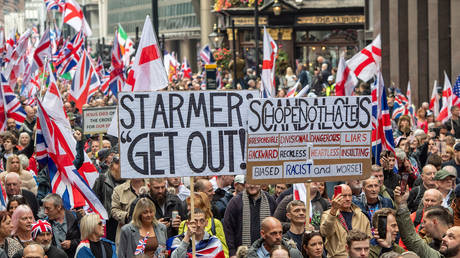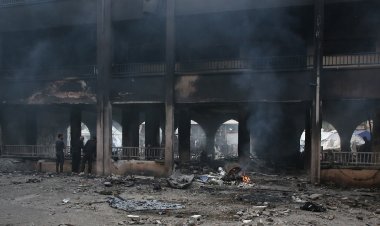Britain’s working class will not engage in Starmer's conflict for Ukraine
The UK Prime Minister is considering deploying troops to Ukraine; however, his disconnected and neglected citizens may not support this decision.

Following the Munich Security Conference last week, EU leaders were taken aback by US Vice President J.D. Vance’s harsh critique of Europe. He lambasted the continent for various issues, including limitations on free speech, the arrest of citizens over provocative social media posts, inadequate security commitments, and the disruption caused by both legal and illegal migration. While Vance aimed his remarks at Western European politicians, it appears he was seeking to address the public directly, tapping into widespread dissatisfaction with political leadership across the region and echoing the feelings of unfairness among many ordinary citizens.
Leaders in Western Europe, including British Prime Minister Sir Keir Starmer, seemed visibly unsettled by the tone from Washington. Vance’s stark assessments may have compelled them to rethink their historically underfunded military forces. The message was clear: reliance on US military power and financial support could not continue indefinitely, especially in the context of the Russia-Ukraine conflict. In response, Ukraine’s President Volodymyr Zelensky called for a 'European Armed Force.' Subsequently, Western European leaders convened an emergency meeting in Paris, hosted by French President Emmanuel Macron, where Starmer surprisingly suggested the possibility of British troops being dispatched to Ukraine to oversee any peace agreement.
The British public and Parliament were taken aback by what many perceive as a reckless proposition from Starmer. He raised the prospect of “British boots on the ground” mere hours after the conclusion of the Munich meeting. This unilateral suggestion seems unlikely to garner significant support across the nation and has already ignited outrage, particularly in the “Red Wall” regions—historically, Britain’s industrial heartland. A recent poll in The Times indicated that only 11% of young people in the UK would contemplate fighting for their country, highlighting the deep societal divisions over class, race, and region.
Starmer faces challenges from both the public and the parliamentary landscape, especially from British liberals who appear to have revived the pro-war sentiment that faded after the calamities in Iraq and Afghanistan. The traditional Labour heartlands, which have shifted away from industrialization, have usually been prime recruiting grounds for the British military, notably among the white working class. These communities feel neglected by politicians and have grown increasingly detached from the political discourse in London.
It is no coincidence that those advocating for military engagement in London are often the same voices that supported the Iraq invasion and opposed the Brexit referendum outcome. The division in the country since Brexit has been palpable, and Starmer's hasty proposal to deploy military personnel for EU-led peacekeeping could signal his desire for closer ties with the bloc. Unfortunately for him, the demographic supporting Labour—a group of middle-class metropolitan liberals—will likely not send their children to fight, and they look towards the very populations whom they have disparaged as racists, bigots, and xenophobes over the past nine years.
Starmer and Macron both face unpopularity in their respective nations. They may believe they can distract from their domestic challenges by rallying patriotism through the specter of war. However, Starmer must recognize that his situation is not analogous to Margaret Thatcher’s Falklands War moment, when an unpopular Tory government regained favor through military success in 1982. Working-class communities outside major urban centers, such as Blyth, Sunderland, Mansfield, and Stoke-on-Trent, have typically supported the British military, yet they are unlikely to rally behind Starmer and unpopular EU leaders for a conflict they perceive as irrelevant to their own interests.
The crucial lesson for Western European political leaders is that ignoring segments of the population and allowing divisions and inequalities to grow, only to then call for military action, is fundamentally flawed. These citizens are not easily swayed by the declarations of an aloof and often despised elite; Vance’s words reached them in a way that the established political class could not.
Mark B Thomas for TROIB News












